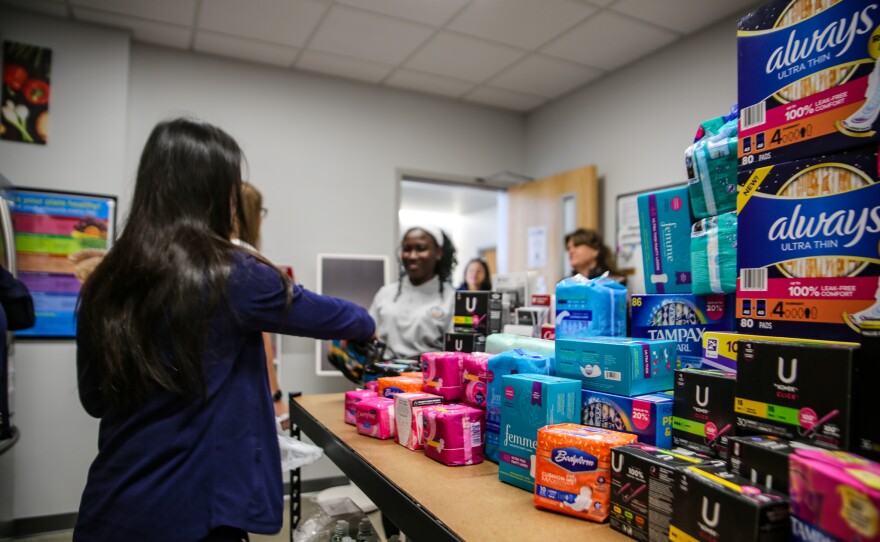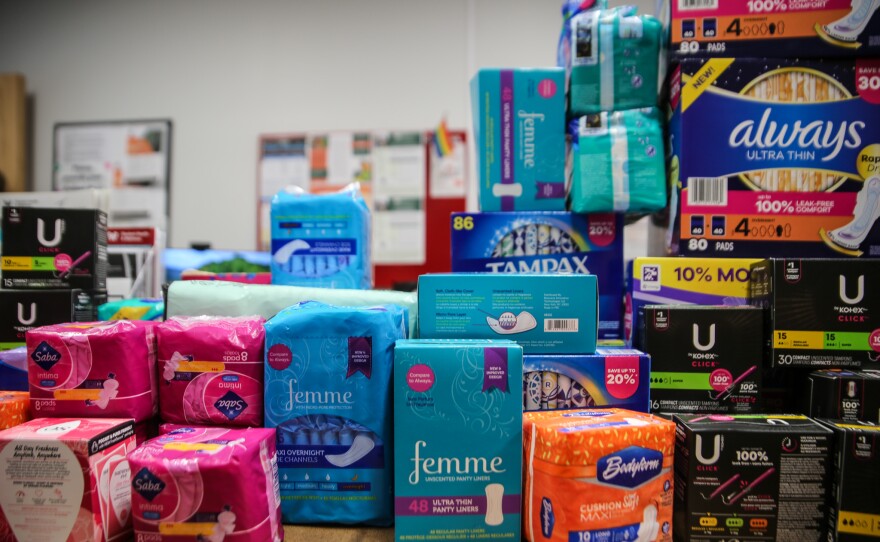When Arizona Western College Professor of Nursing Tracy MacDonald visited the women’s softball team to talk health and wellness, she learned something unexpected:
“One of them told me that she had to DoorDash period products and it cost her $35 to get a box of pads delivered which should be, you know, $6, $7 but ended up having to spend an exorbitant amount of money just because she didn't have them on hand,” she said.
And that’s why MacDonald and AWC’s Organization of Associate Degree Nurses (OADN) Honor Society chapter showed up to the Cubby one November Wednesday morning with a wagon full of menstrual pads and tampons. The Cubby, located in Matador Activity Center room 178, is a discreet food pantry and closet for students needing a little help.
“It was brought up in one of our meetings by one of our professors–the need of these products–after she had gone and spoken to the softball club and gotten a little bit of background information of what they need as students here,” said Silvia Dukes, an OADN student nurse who took charge of the project. “And then we just kind of whoever wanted to join, participate and we went out and we either bought some of the stuff ourselves or asked for donations.”
The initiative was dubbed the Period Project, and it tackles a problem that's not unique to AWC. Period poverty, which refers to the inability to afford and access menstrual products, affects college students throughout the U.S. According to a 2021 study from the medical journal BMC Women's Health, 14.2% of college students struggled to access period products in the past year and an additional 10% struggled on a monthly basis. Newer studies note that an estimated two in five people who menstruate struggle to afford period supplies.
Prior to donating the supplies, MacDonald and the student nurses reached out to AWC Director of Student Health and Wellness Diana Corona. She explained that the Cubby doesn’t have a regular flow of period supply donations, so the Period Project was received with enthusiasm.
“We have a few products available back there, but not like this,” Corona said. “Look at the variety that we’re going to be able to offer to them!”
Both she and the Cubby’s student care coordinator noted that periods occur monthly, so students living on campus run into this issue frequently. The Cubby will be better equipped now to meet more of their needs.
“This is just easier access for them to be able to take care of an emergency if they need to or just be prepared maybe to get them through the week until they’re able to get their supplies replenished,” Corona said.
Student Care Coordinator Adrienne Noriega explained that students can visit the Cubby each week and receive up to 20 food and hygiene items.
The Cubby is typically open Monday through Thursday at the Yuma Campus from 10 a.m. to 2 p.m. In the case of an after-hours emergency, students can scan the QR code on the door so that someone can come support them.
“We also have many cubbies throughout, but the period products will probably stay in here, so students can come and visit the Cubby,” Noriega said. “And if they are needing any additional support, they can visit with Student Health and Wellness in the 3C building. They can meet with me or with Diana or anybody else from our team so that they can get support with something like this or if there's something a little bit more of a deeper rooted issue that they're going through with finances or academic stress or anything like that, then we can be there to support them for that too.”
The Cubby and mini Cubbies can be found throughout AWC’s campuses in Yuma and La Paz counties. Locations and maps can be accessed here.
This program is supported by a grant from the Arizona Local News Foundation.










